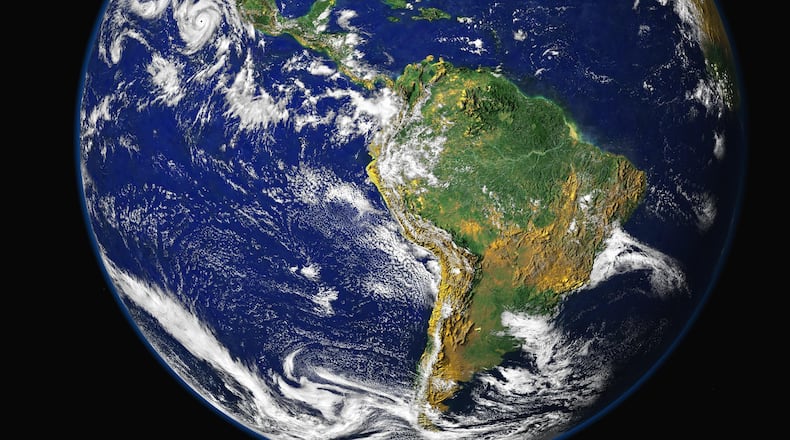House Republicans, unhappy that NASA keeps producing evidence that they do not wish to hear about manmade climate change, are taking action. They argue that it is not NASA's mission to study the Earth from the vantage point of space; it is NASA's mission to look from Earth outward into space, and they are trying to rewrite the agency's budget to reflect those priorities. In their recently passed budget, they propose to slash $300 million to $500 million, a cut of close to 30 percent, from NASA's Earth science budget.
They make a strange and utterly ahistorical argument. When NASA was created in 1958, the agency's very first responsibility listed by Congress was "the expansion of human knowledge of the Earth and of phenomena in the atmosphere and space." Earth studies had been an explicit part of the agency's mission statement ever since, but in 2006, under the Bush administration, the study of Earth was quietly dropped. (It was restored in 2011.)
But it goes back much, much farther than that.
From the beginning, the primary reason that mankind has studied the stars and the skies has been to discover what they could tell us about life here on Earth. In every culture, those who knew and watched the stars told us when to plant our crops and when to harvest them, when to marry and when to fight. Rare events such as eclipses and comets were treated as omens of major change, altering the course of human history merely by their appearance in the skies.
And long before GPS satellites circled the globe, the stars were our navigational guides, telling us where we were and how to get to where we wanted to be. Today, NASA's Earth-science program still generates critically important weather and climate data for planting, predicting hurricanes, tornados, droughts and other phenomena. Yet somehow that mission is now deemed inconvenient.
Those who know the history of science know that we've been through this process many, many times before. More than 400 years ago, for example, the Italian astronomer Galileo Galilei was telling us inconvenient truths about the sky and the Earth that those in power at the time did not want to hear.
They did not want to know that the Earth was not the center of God's creation, the fixed point around which everything revolved. They did not care to accept the evidence that Earth was but one small planet revolving around the sun, which itself is a small little sun in a much larger universe. They even cited biblical provisions as proof that such a thing was impossible, just as deniers such as Sen. James Inhofe, head of the Senate Committee of Environment and Public Works, cite the Bible today to insist that manmade climate change is an impossibility.
And when Galileo asked critics to at least look at the data, they refused. "My dear Kepler, what would you say of the learned here, who ... have steadfastly refused to cast a glance through the telescope?" Galileo wrote in frustration to a fellow astronomer. "What shall we make of this? Shall we laugh, or shall we cry?"
In the end, to save his life from the Inquisition, Galileo was forced to publicly recant his evidence that the Earth revolved around the sun and to cease writing or talking about it. But as the proceedings ended, tradition has it, he stubbornly muttered "Eppur si muove," beneath his breath. "And yet, it still moves."
And yet, it also still warms.
About the Author
Keep Reading
The Latest
Featured


